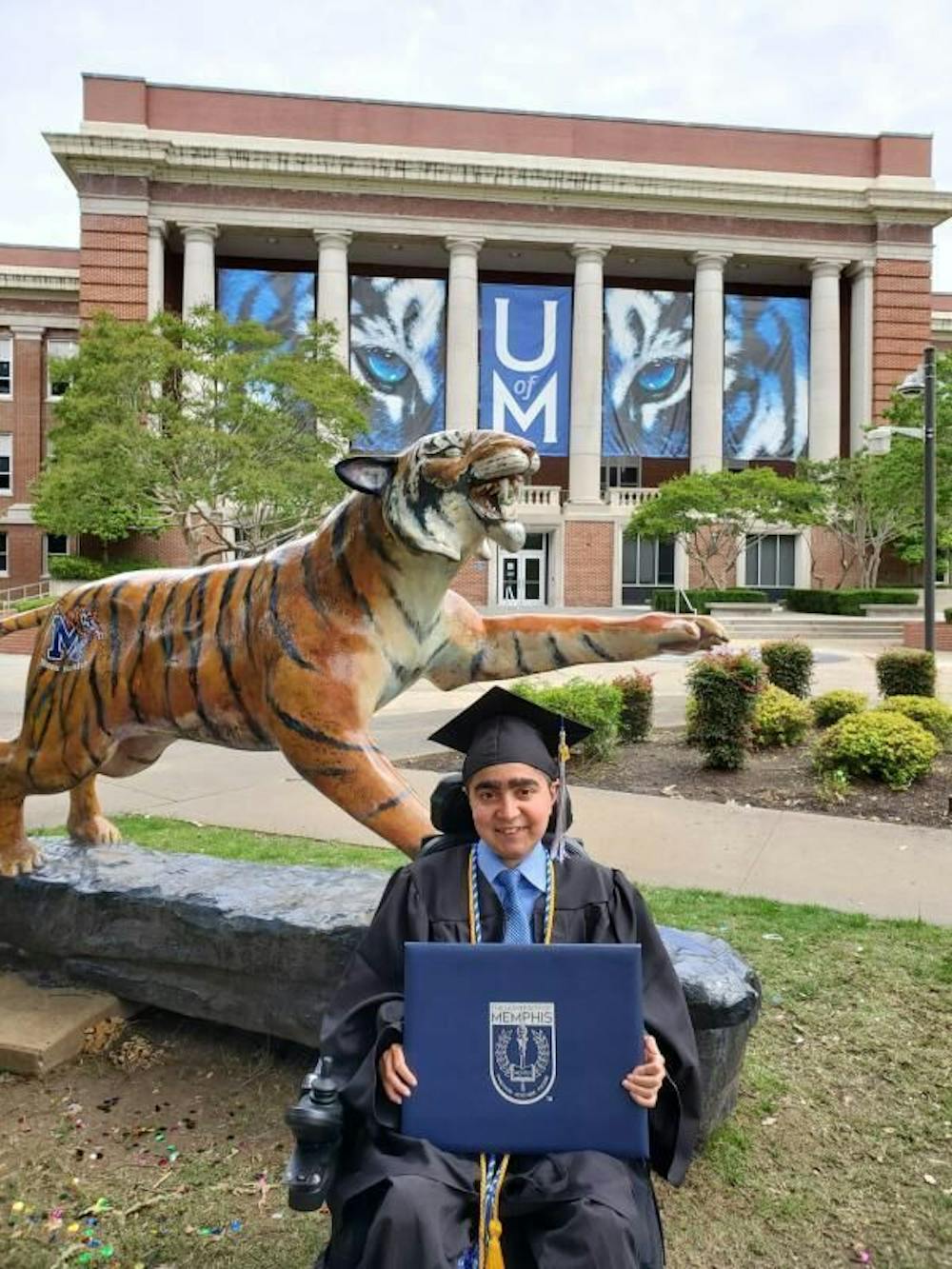As an institution that prides itself on commitment to diversity and inclusion, the University of Memphis runs several offices and programs that are meant to serve and support different student communities and demographics.
One such demographic often not heard about are students with disabilities. The most recent data from the National Center for Education Statistics found that 19% of undergraduate students reported having a disability, and Memphis is no exception. The office of Disability Resources for Students states on its website that between 800 to 900 students each year register with DRS for accommodations and support. That number includes students with many different kinds of disabilities, both mental and physical.
“The biggest challenge is not all the buildings are amazingly accessible,” said Ravi Lipman, one Memphis student with a disabilty.
Lipman – a U of M graduate and first-year student at the Cecil C. Humphreys School of Law – has Duchenne’s Muscular Dystrophy, a genetic disease that causes progressive muscle weakness. Over the years, Lipman’s mobility has decreased, and he has been using a motorized wheelchair since high school.
He said accessing certain buildings and rooms was the biggest difficulty he faced during his four years at Memphis. He mentioned broken elevators and auditoriums where he could only sit in the front or back row. He also said that, apart from the UC bathrooms, most bathrooms did not have automated switches to open the doors, and he would often have to ask others to open them.
“You have to plan out where you’re gonna go at what time,” he said.
DRS plays a large part in providing accommodations for students with disabilities, from visual and hearing disabilities to psychiatric disorders and learning disabilities. The DRS mission statement says it “collaborates with the campus community to design an inclusive and accessible environment for students with disabilities to encourage maximum engagement and interaction.”
The office is responsible for registering the medical information of students with disabilities, working with students to provide appropriate accommodations – such as assistive technologies or extended test times, and processing student grievances about accessibility of campus facilities or programs.
Lipman said he’s worked with DRS to receive accommodations for extended test times and note-taking services, and his experience was overall a positive one.
“They’re very caring, and they make sure that everything you need is done in a timely fashion,” he said.
At the beginning of the pandemic, campus life and academics changed quite a lot, and many found the pivot to online learning difficult and preferred in-person learning. However, Lipman said the switch to online made class participation somewhat easier. He was able to get his exams proctored remotely, rather than on campus, and DRS established a helpful online portal for registration and form submissions.
However, like other students, he missed seeing his friends and attending campus events, especially – as a huge sports fan – going to football games and tailgates.
“In that way, going online kind of sucked,” he said.
Ravi Lipman graduated May of 2021 and is now a first-year law student. He suffers from Duchenne’s Muscular Dystrophy, which made accessing certain buildings, classrooms and bathrooms difficult.






